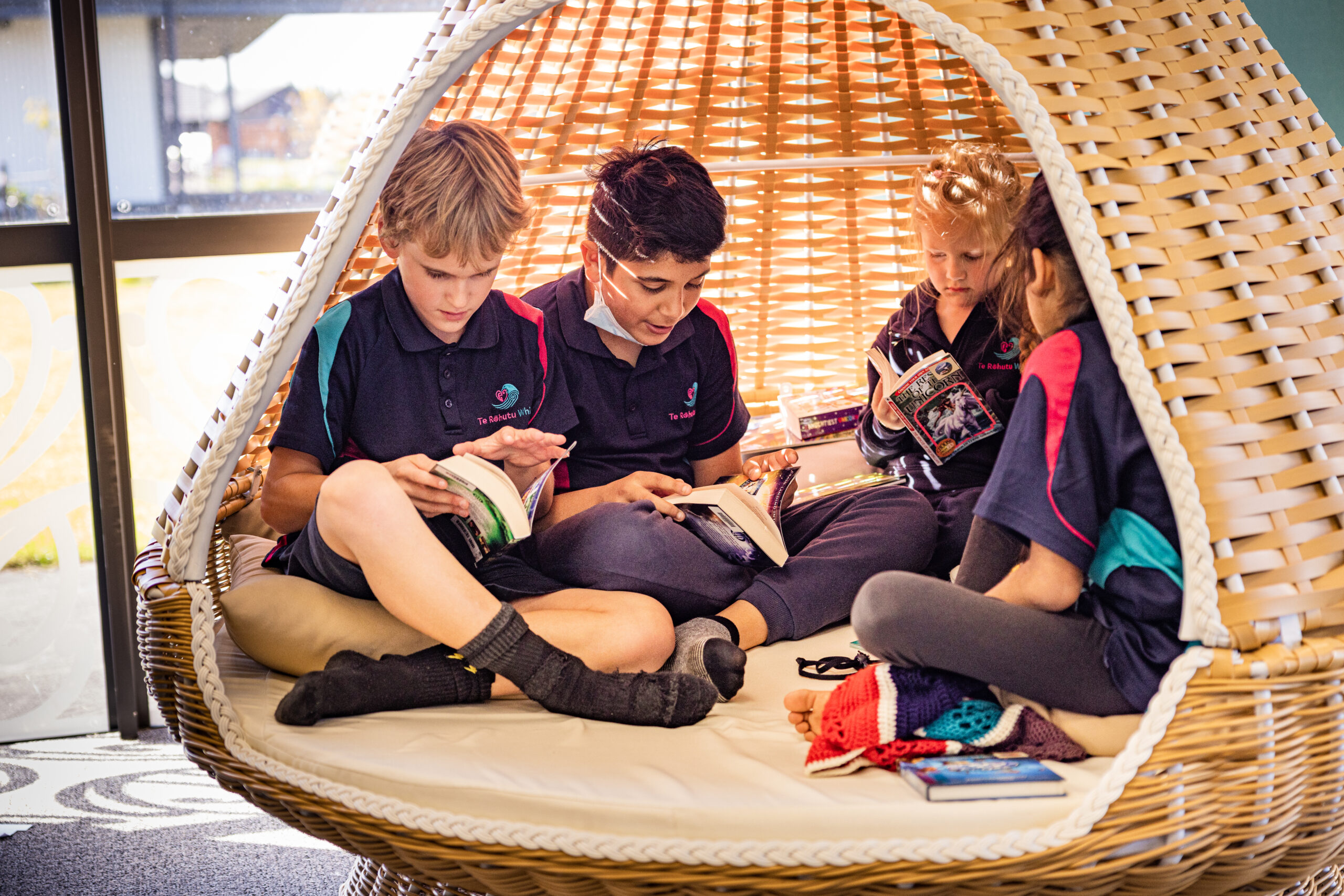
All Images supplied by Learning Solutions Global
Schools have a wonderful new brief: to create calming, natural environments indoors.
Two schools that have nailed the assignment here in New Zealand are Te Rohutu Whio in Rolleston and Te Kura Whakatipu O Kawarau in Queenstown. When the South Island schools made the bold decision to modernise their learning spaces, they naturally decided to get Learning Spaces Global involved.
Principal of Te Rohutu Whio, Kate Morgan reflects fondly: “The development of the personalised details that link to our localised curriculum made this work really special to us. The natural light in the spaces is enhanced by the natural furniture used. The environment has really been used to its best advantage.”
Adding features such as LED lights to the library issuing desk, is an example of how Learning Spaces Global went the extra mile, Kate tells us.
Read our full print magazine issue for Term 2 here.
She also says that one of the most exciting but unexpected outcomes from the project has been the way in which Learning Spaces Global use natural materials to help elevate the colours in the learning environment.
Kate reveals: “We’re finding the children are really taking notice of the colours in the space; the natural furniture really allows these to pop. It’s safe to say, they are really loving their new environment!”
Heinz Woodman is the business development manager for Learning Spaces Global, and recalls: “Both schools contacted us to obtain a design and quotation fitout as they were both looking for natural wooden furniture, calming colours, and bespoke pieces that they could make their learning spaces look unique and reflect what the schools represent.”
Kitting both schools out with everything from storage units, locker units, table, chairs, soft furniture to bespoke plywood acoustic trees and reading nooks has transformed their learning environments beyond recognition.
Heinz notes that the project outcome really satisfied the desire of both schools to have natural timber furniture that could be movable, durable and look amazing in the learning spaces: “They were strong about not having an institutionalised look or feel about the school and loved the way our furniture is not made from colourful MDF or melamine panels with edgeband.”
He feels the results speak for themselves and says both projects were hugely enjoyable experiences for all involved.
“We were so excited to work with both schools. The feedback from teachers, parents and children from these cutting-edge projects has been overwhelming. Everyone who sees the spaces just says wow and how much they would love to be a child again and learn in a school like this.”
Educators and politicians are trying to address the current teaching shortage through different policy settings.…
Melanie Webber was the president of the secondary school union PPTA Te Wehengarua from 2021…
Wait times for paediatric care is having an impact on young people’s education and the…
Home of the brave, land of the free… except when it comes to books for…
Could a gender achievement gap in maths be due to confidence? Sarah Buckley from the…
The much-delayed English draft curriculum is now out for consultation, generating discussion from teachers.
This website uses cookies.